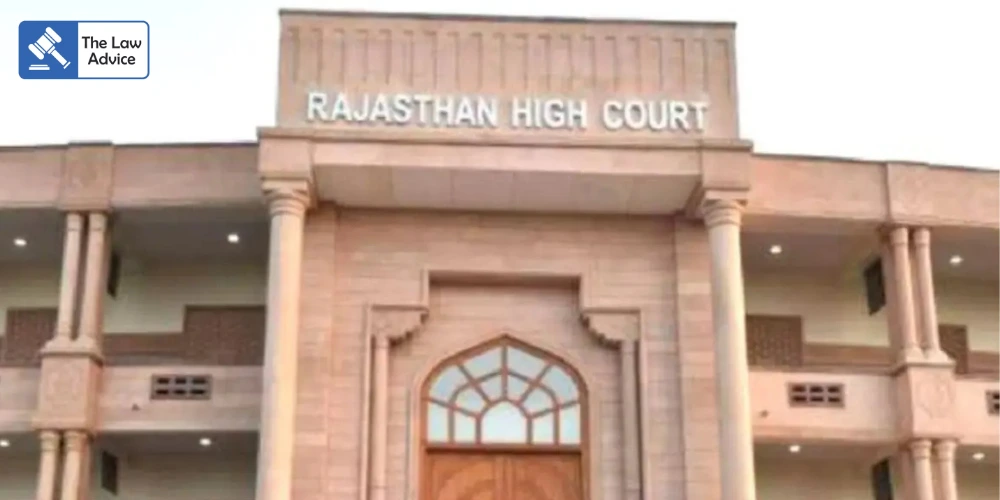The Rajasthan High Court has reiterated that acquittal in a criminal case—particularly on the ground of benefit of doubt—does not automatically entitle a person to continue in government service if the very basis of their appointment, namely educational qualification certificates, is found to be forged.
Justice Anand Sharma, while dismissing a writ petition filed by a Junior Accountant, upheld the decision of the employer to terminate his services despite his acquittal in the related criminal proceedings.
The petitioner was appointed as a Junior Accountant in 2007 on probation. Subsequently, doubts were raised regarding the authenticity of the educational certificates submitted during the recruitment process. In response, the petitioner produced a verification letter purportedly issued by Magadh University.
However, upon inquiry, Magadh University categorically stated that the petitioner had never been admitted to the institution, and therefore, both the qualification certificates and the verification letter were fabricated.
Based on this revelation, a criminal case was initiated against the petitioner on charges of forgery, fabrication, and cheating. The trial court, however, acquitted him, extending the benefit of doubt. Despite such acquittal, the employer terminated his services, prompting the present challenge before the High Court.
Counsel for the petitioner argued that:
• The acquittal by the criminal court ought to prevail, since the court possessed the competence and jurisdiction to adjudicate upon the authenticity of the documents.
• Once acquitted, the presumption should be that the certificates were genuine, thereby conferring eligibility for appointment.
The State, on the other hand, maintained that:
• Both the qualification certificates and the verification letter were forged, as confirmed by Magadh University itself.
• The petitioner’s acquittal in the criminal case was not on merit, but only by giving him the benefit of doubt.
• Proceedings before the criminal court and departmental proceedings are distinct in nature, with different standards of proof. Hence, criminal acquittal does not bind the employer.
The High Court sided with the State’s reasoning. Key observations include:
• Different standards of proof: Criminal proceedings require proof beyond reasonable doubt, whereas service/disciplinary matters can be decided on preponderance of probability.
• No automatic presumption of eligibility: Acquittal does not by itself mean that the forged documents become valid or confer qualification.
• Reliance on Supreme Court precedent: Reference was made to Avtar Singh v. Union of India & Ors., where it was held that even acquittal does not vest a candidate with an indefeasible right to appointment or continuation in service. Employer retains discretion to assess suitability.
• Forgery confirmed by University: The Court noted that the categorical statement of Magadh University that the petitioner was never admitted there provided substantive material to justify the employer’s action.
The Court further remarked:
“…the contention that acquittal in the criminal case automatically validates the documents is irrational and misconceived. Verification of qualification is an independent process and cannot be overridden by criminal court findings, particularly when acquittal is based merely on benefit of doubt.”
Holding that forged qualification documents cannot form the basis of a valid appointment, the Court dismissed the writ petition. The petitioner was found ineligible to continue as Junior Accountant.
Case: Ashok Kumar & Anr. v. Ajmer Vidyut Vitran Nigam Limited & Ors.
